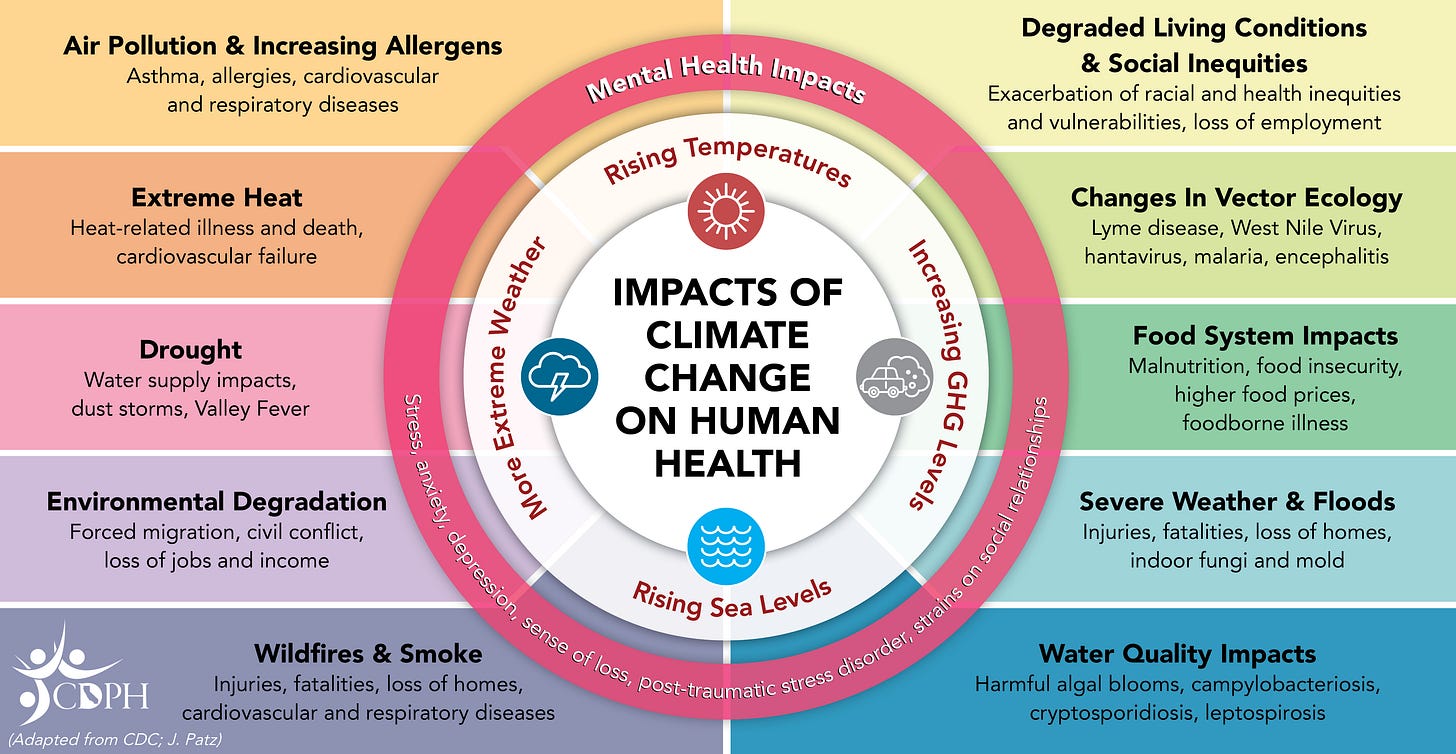How Climate Change Impacts Public Health
Written by Mariam Darb
Climate change has been an environmental issue particularly highlighted within this century. But it impacts us not only environmentally but also health-wise. Many effects of climate change such as rising sea levels and temperatures have been the cause of health problems, urging the need to mitigate our greenhouse gases to slow down this issue.
One of the most direct effects of climate change on health is the increase in heat-related illnesses and deaths. As the temperatures of the earth rise, heatwaves become more common, which poses serious risks to people such as the elderly, children, and those already diagnosed with health conditions. Heatstroke occurs quickly, and exposure to high temperatures for a long period can cause chronic conditions like cardiovascular and respiratory diseases.
Another impact climate change has on health is air quality. Increased temperatures are known to aggravate the formation of ground-level ozone, a key component of smog, which can aggravate respiratory conditions such as asthma. Additionally, wildfires, becoming more frequent and severe due to climate change, release large amounts of matter into the air, which further increases the diagnosis of respiratory health.
In order to address these health impacts, it is crucial to integrate this issue into public health planning and institutions, such as the CDC. This includes investing in early warning systems for heatwaves and diseases and improving air quality and control measures. Public health policies must also focus on the root causes of climate change by reducing greenhouse gas emissions and promoting sustainable practices.


